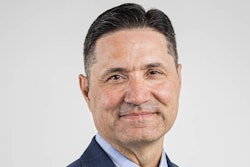In a provocative opinion piece in September 2016, my adviser and the founder of the Penn Center for Minority Serving Institutions (CMSI), Dr. Marybeth Gasman, critiqued majority colleges and universities for their insufficient efforts to recruit diverse faculties. She suggested that these institutions “visit Minority Serving Institutions — institutions with great student and faculty diversity — and ask them how they recruit a diverse faculty.”
As a research associate for CMSI, I regularly conduct interviews with MSI faculty members. I plan to pursue a faculty position after completing my doctoral studies, and these interviews allow me to imagine my future and gain insights into this line of work. In addition to developing an understanding of their various responsibilities and how they manage them, I also am fundamentally curious about why they chose this profession in the first place. This curiosity stems from my somewhat nontraditional path to doctoral studies in higher education and the constant soul-searching that accompanies my faculty aspirations.
Most of my undergraduate coursework was centered on the Middle East and learning the Arabic language; I aspired to become a foreign service officer. During my early 20s, my focus shifted toward making an impact domestically, and I balanced three education-related jobs for three years before pursuing doctoral work.
My decision was partially driven by intellectual curiosity sparked by my own experiences in college as a Black male student who was underrepresented in an elite environment, and a desire to make a difference for students who might face similar challenges.
Yet, it was also pragmatic — I had discovered that my bachelor’s degree was limiting my career mobility and planned to return to school to enhance my educational credentials. Enrollment in a Ph.D. program was a means to achieve this aim without going into further debt, and I was fortunate enough to be accepted without first acquiring a master’s degree.
My program has flown by so far. I am wrapping up my last semester of coursework and honing in on a dissertation topic, and entry into the job market seems fast-approaching. With much of what I read about faculty highlighting either the dearth of faculty positions or the Herculean demands placed on professors, my interviews with MSI faculty members are a refreshing exercise.
Among my most pressing questions are the ones that I have most recently faced or will grapple with as I complete my program: How did they become interested in their disciplinary field? Why did they decide to become a professor? How did they attain their faculty position?




















